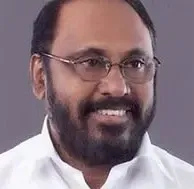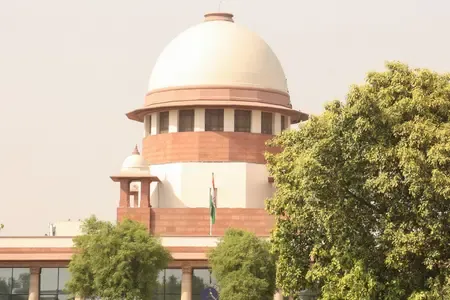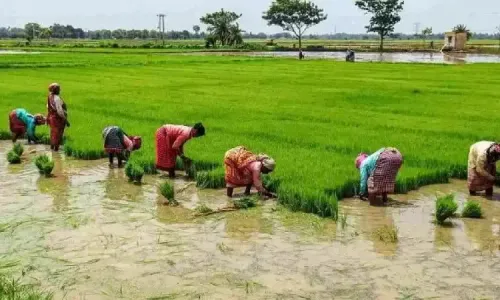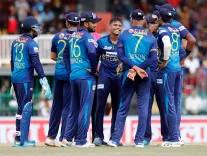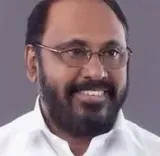Did Dhirendra Shastri's 'Bhagwa-e-Hind' Remarks Cross the Line?
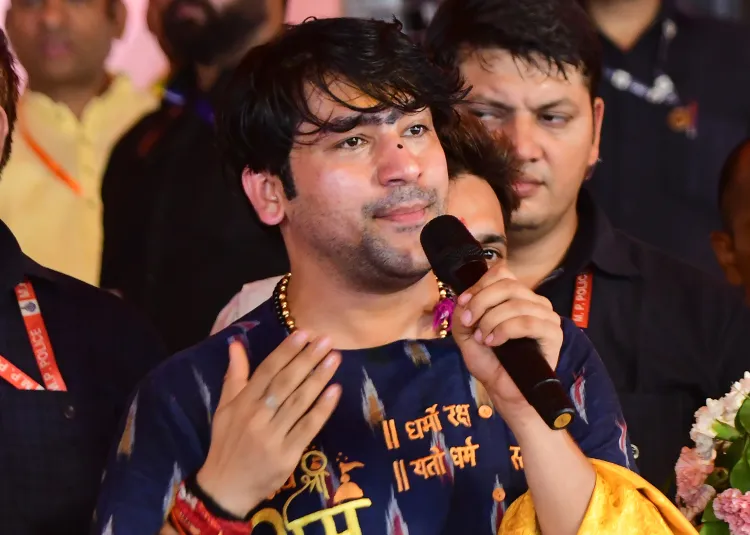
Synopsis
Key Takeaways
- Shastri advocates for a 'Bhagwa-e-Hind'.
- Opposition accuses him of divisive politics.
- Critics call for focus on unemployment and education.
- Political leaders emphasize unity in diversity.
- Religious leaders' influence on elections is significant.
New Delhi, July 7 (NationPress) Religious figure Dhirendra Shastri has sparked a significant political uproar with his recent comments made during a trip to Bihar, where he expressed that his aspiration was to create a 'Bhagwa-e-Hind' (saffron India).
His declaration, made while speaking at a Sanatan Mahakumbh, faced severe backlash from Opposition parties, who accused him of advancing a divisive political agenda.
"My only dream is Bhagwa-e-Hind. If anyone attacks my religion, I will respond. This is because I am Hindu and I only advocate for Hindutva," Shastri remarked.
He urged people to transcend caste divisions and unite, clarifying that he held no animosity toward any religion but criticized Hindus who fracture society based on caste and regionalism.
In a pointed reaction, various Opposition leaders claimed he was functioning as a spokesperson for the BJP, attempting to polarize voters as the Bihar Assembly elections approach.
They also challenged his silence on critical issues such as unemployment, education, and poverty within the state.
RJD MP Manoj Kumar Jha commented to IANS, "We adhere to the Constitution and the principles of Baba Saheb Ambedkar, Mahatma Gandhi, and Pandit Jawaharlal Nehru. India is a multifaceted nation—with diverse religions, languages, and cultures. Our national flag is the Tricolour, and such one-dimensional thinking will not prevail here."
Congress MP Manoj Kumar supported this view, asserting, "Hindus appreciate more than just the saffron hue—we cherish all colors. Even our flag is Tricolored. Everyone knows he only conducts events for monetary gain. He organizes meetings close to elections. If he is genuinely spiritual, why does he require extensive security? He has become a government propagandist. Hindus, Muslims, Sikhs, and Christians in India are unified and will remain so."
"He is making these polarizing comments because elections are approaching in Bihar. Why doesn’t he address unemployment, healthcare, and education? Bihar has produced the highest number of IAS and IPS officers in the country. Does he believe people will be swayed by such unfounded statements?" he added.
Congress MP Tariq Anwar also condemned Shastri for his timing.
"Such individuals become proactive whenever elections are near—whether for the Lok Sabha or the Assembly. They are incited by the BJP because the party lacks achievements in governance. After 11 years at the Center and 20 years in Bihar, the state ranks last in poverty, unemployment, corruption, and healthcare. Yet they still seek votes shamelessly," he remarked.
NCP (SP) MLA Rohit Rajendra Pawar referenced Shastri's past remarks about the esteemed saint Tukaram Maharaj, stating, "This Bageshwar Baba previously visited Maharashtra and showed disrespect toward Tukaram Maharaj. We opposed him then, and we oppose him now. He may collaborate with the BJP in Madhya Pradesh, but in Maharashtra, we adhere to our saints' teachings. Discriminatory politics will not be accepted here."
Shiv Sena (UBT) spokesperson Anand Dubey expressed, "We are not particularly concerned about who Baba Bageshwar is. What matters is that elections are drawing near in Bihar, and each party is campaigning. BJP has its approach, and JD(U) has its own. But India belongs to everyone. Claiming 'Garv se kaho hum Hindu hai' does not equate to hating Muslims, Sikhs, Christians, or Buddhists. Our culture embodies 'Vasudhaiva Kutumbakam'. The emphasis should be on employment, infrastructure, poverty alleviation, and eradicating casteism, rather than promoting hatred."
He added that the state's focus should prioritize improved education, infrastructure, job generation, and social harmony rather than communal discourse.
NCP (SP) leader Jitendra Awhad also criticized Shastri, stating, "I do not comprehend the origin of such phrases. Anyone who genuinely respects India aspires for a progressive and developed nation."


